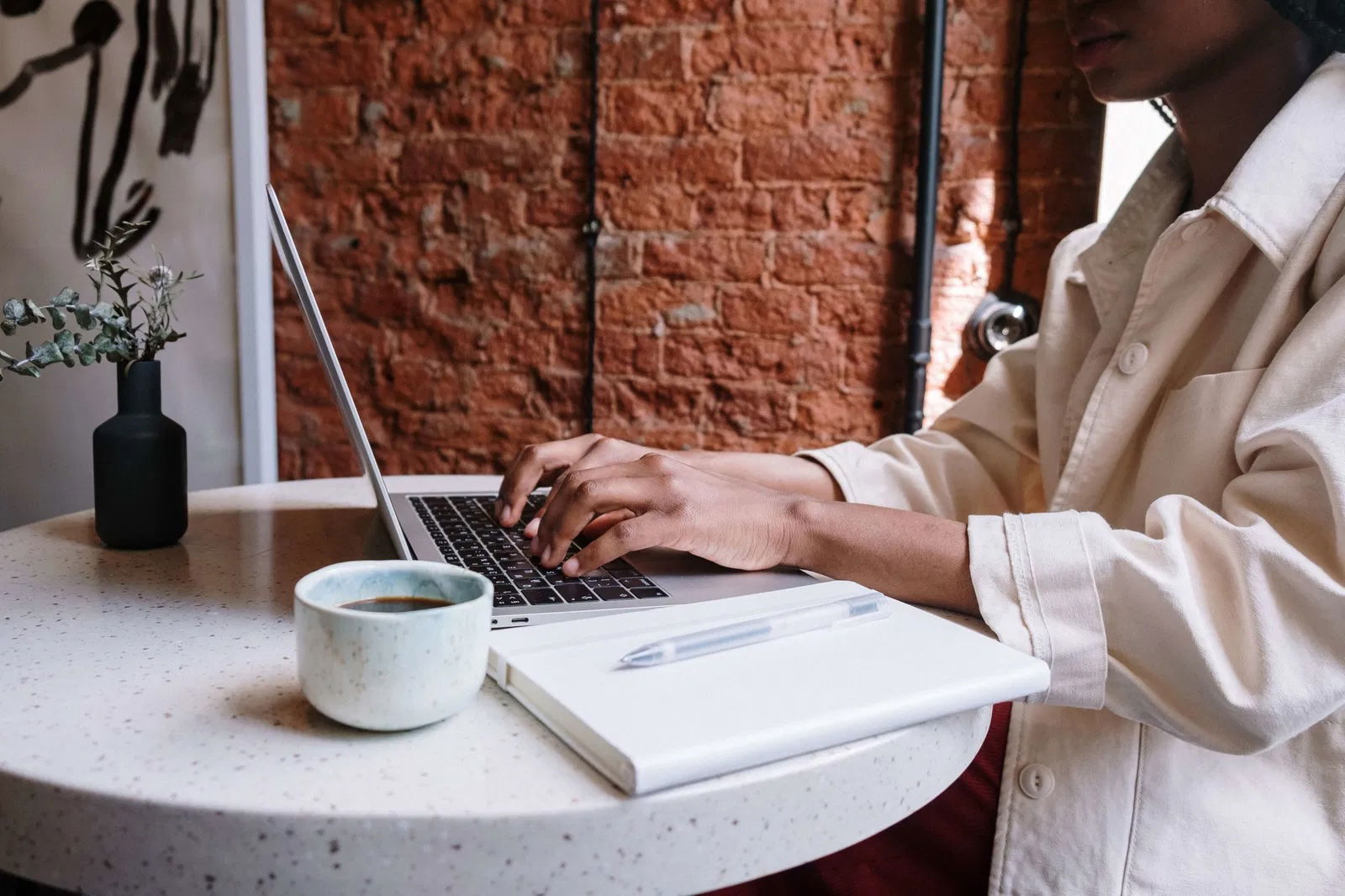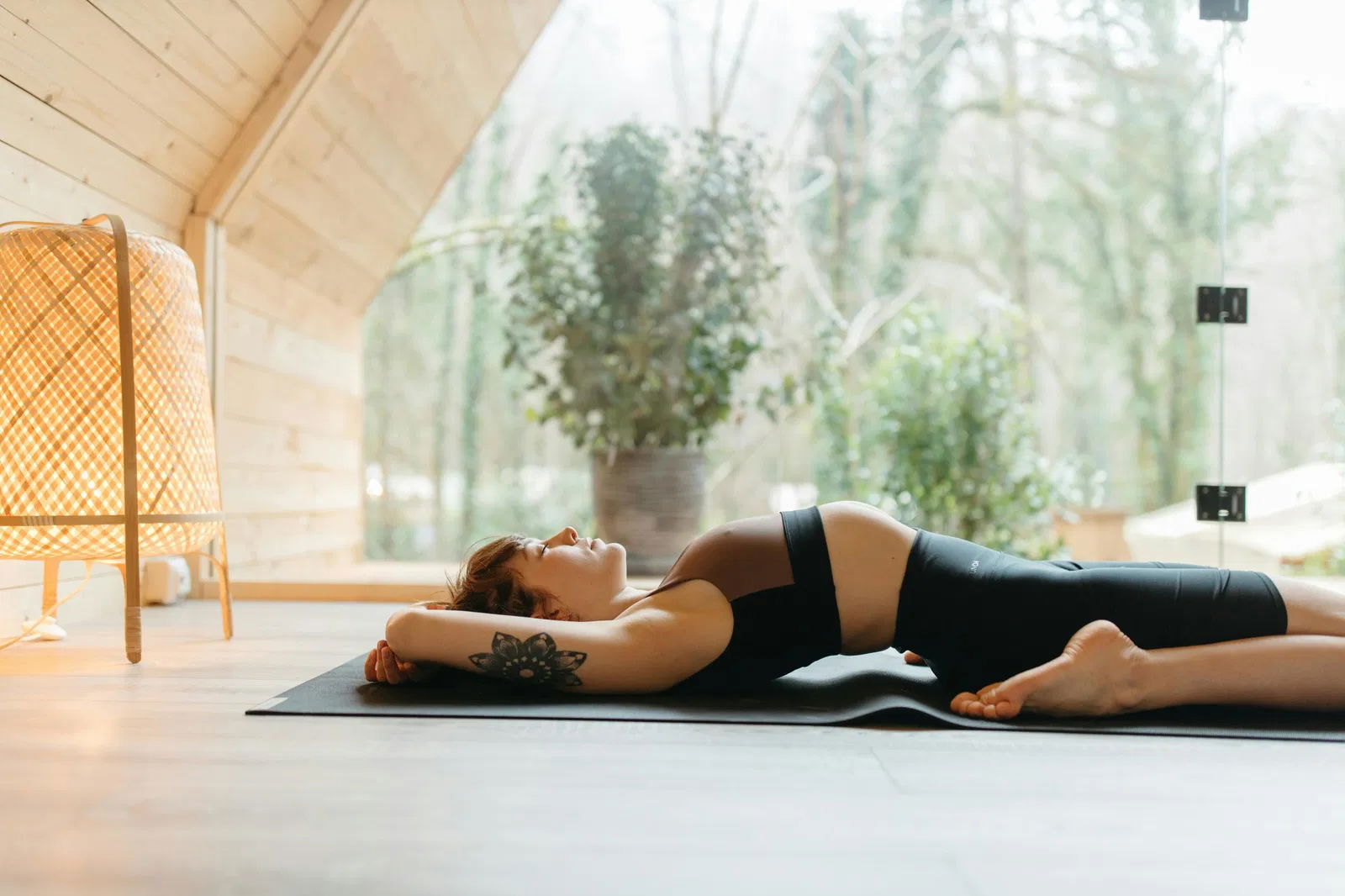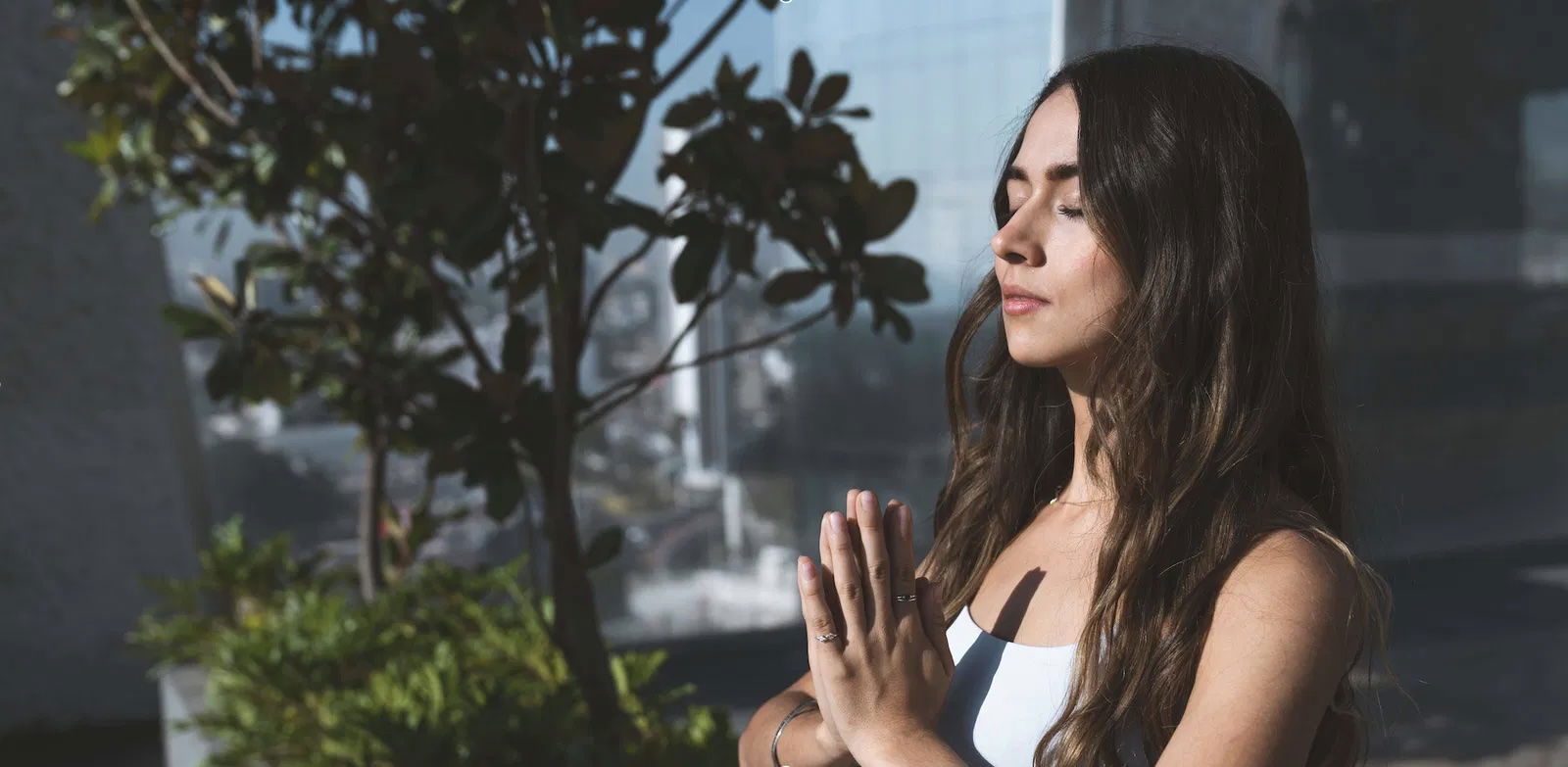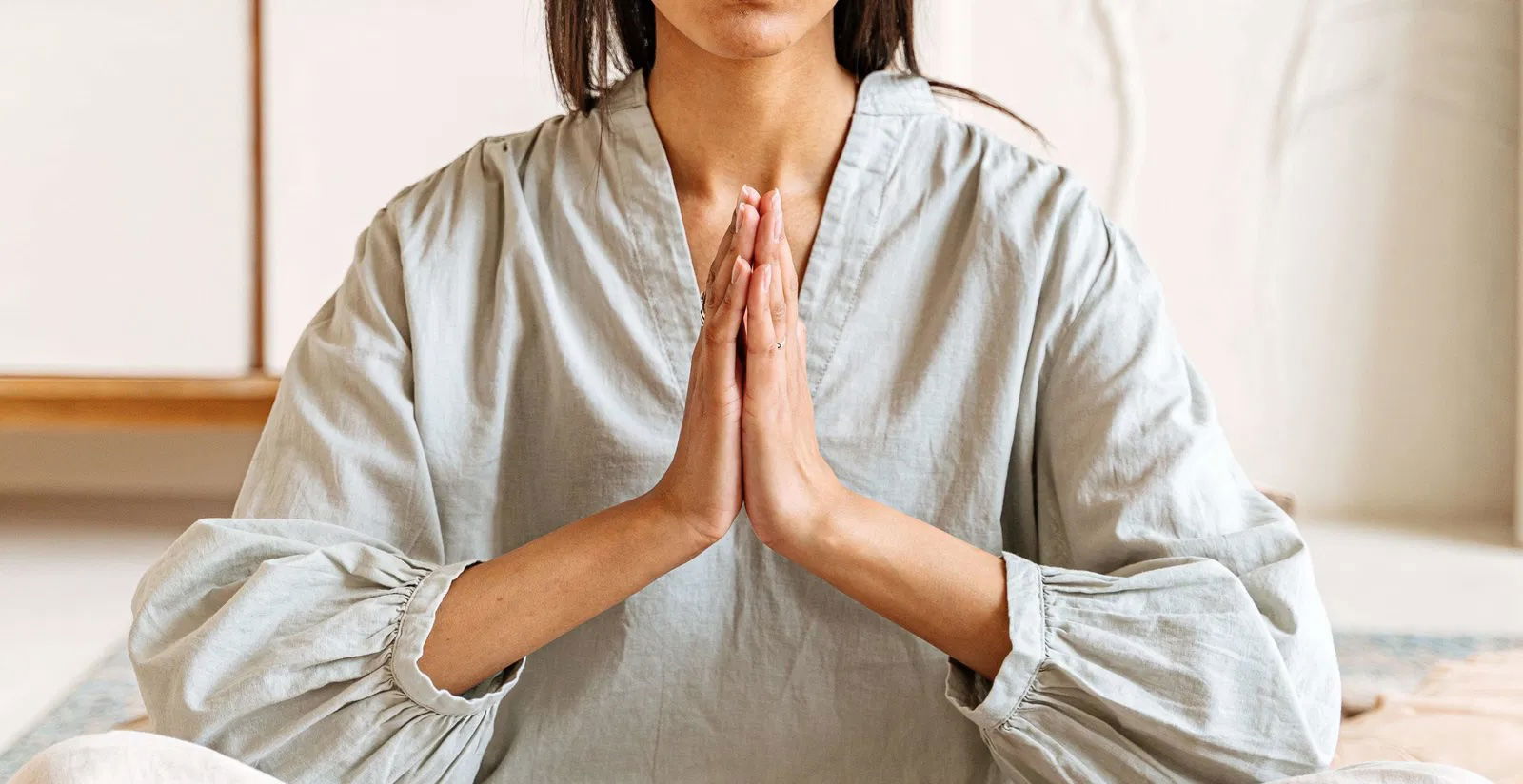Why is it that some people manage to meditate daily, while for others meditation is the first thing to go when they have little time? We asked users of the Meditation Moments app for their best tips. When do theymeditate and how do they integrate meditation into their daily routine?
What is the best time to meditate?

Starting to meditate can be difficult
We regularly hear from users that they find it difficult to meditate daily. Many begin full of motivation, but find that after a few days or weeks it slips away. The reason? They are busy, have lost motivation or simply don't know how to build a new habit.
Meditation Moments is here to help you meditate consistently. Why? Because we know how difficult it can be to build a new habit.
We talked to users of the Meditation Moments app about their experiences with meditation. These users regularly meditate with the app and have managed to make meditation a habit. When do our experienced users meditate and what makes them stick to their meditation routine?
When to meditate?
Actually, there is no best time to meditate. The best time to meditate is the time that is convenient for you. You may be wondering if the time when you meditate matters if you want to be consistent. The answer to this is yes and no.
The survey we conducted in which 7697 users of the Meditation Moments app participated showed that the largest group (65%) meditate in the evening. But it was striking that people who have fit meditation better into their daily routine meditate relatively more in the morning compared to users who have fit meditation less well into their daily routine.
The benefits of a morning meditation
We all know the days when we are busy, experience stress and feel like we are swept along by the delusion of the day. By taking a moment for ourselves at the beginning of the day, we can change our perspective and start the day with a better intention.
At the beginning of the day, your mind is still fresh and you can take a moment for yourself undisturbed. The rest of the world is not yet awake, the work day has not yet begun and you are all alone with your own thoughts for a while. A morning meditation helps you become more aware and quiet your mind before the day begins.
The benefits of meditation are varied (less stress, more energy, better sleep), but the power of a morning meditation is in the calm nature of the morning, compared to the (often) chaotic afternoon.
A morning meditation helps you start your day on a positive note, whatever your goal for the day. It helps you better navigate your personal and work life.

Tips for meditating in the morning
How to integrate meditation into your morning routine? 2116 experienced users of the Meditation Moments app, who themselves meditate every morning, gave their best tips:
1. Choose a set time
It's easier to create a routine if you choose a set time to meditate. And while some users indicated that you "just have to do it," this can be very difficult at first.
Therefore, other users indicated that it helps to choose a set time in the beginning. For example, meditate right after getting up, during breakfast or in the car on the way to work.
Did you know that it takes an average of 66 days to build a new habit? By meditating every day at a set time for about 2 months, you will make it a habit.
2. Find Your Why
The reason why you meditate is almost as important as the meditation itself. You are less likely to sustain meditating if you don't know why you are meditating. Therefore, it is important to think about your "why.
Many app users meditate to feel better. They reported that it brings peace, positivity and love. There were also respondents who indicated that meditation provided a sense of connection.
Why do you meditate? It doesn't matter what your goal is, whether you want more peace in your mind or to release negative feelings. Your "why" is what keeps you motivated.
For example, are you low on energy? Then your reason for meditating in the morning may be that you want to feel more energized so that you have enough energy and focus to perform your daily tasks.
3. Pair meditation with an action (brushing teeth, showering, eating breakfast)
If you pair meditation with an action you already do by default in the morning, you don't have to set aside extra time for it. For example, the users in our study meditate while brushing their teeth, showering and eating their breakfast. Eating your breakfast mindfully instead of scrolling through your phone is also a form of meditation.
It can also be nice to listen to affirmations during your morning routine. For example, listen to an affirmation track in the shower or while walking the dog.
4. Set a reminder
Everyone forgets to meditate sometimes, especially if meditation is a new habit you want to pick up. Make it less likely that you will forget your meditation by setting a reminder on your phone.
A daily reminder is helpful at first, but after a while you will find that it is no longer necessary. Several users told us that meditating this way becomes second nature after a while.
5. Set your alarm clock earlier
It is not nice to meditate when you are in a hurry. That's why many of our users set their alarm clock a few minutes earlier for meditation. You don't have to get up an hour earlier. Start with a short morning meditation of 3 minutes and build up slowly. Notice the desired effect after just 3 minutes? Then that's totally fine too.
Still, meditating in the morning doesn't work for everyone and you may find it more enjoyable to meditate in the afternoon or evening. And while morning meditation has been proven to give many people a positive start to their day, meditating later in the day also has its own benefits. As with all tips, you know yourself best. It can be easy to be influenced by the opinions of others. So use the tips in this article as a guide and decide for yourself what does or does not work for you.
Why meditate in the afternoon?
Unlike the morning, when it is sometimes easier to make time for a meditation, the afternoon can be hectic and stressful. Chances are, meditation will slip by in the afternoon.
Meditation brings you into the here and now. You don't ponder the past or worry about the future: simply put, you live from present moment to present moment. This reduces tension and stress. If you are not living consciously, you are more likely to get swept up in the delusion of the day. At such times, it is nice to do an afternoon meditation. This makes you feel relaxed during the day.

Tips to meditate in the afternoon
Meditation in the afternoon is a helpful way to relieve stress and tension that have built up during the day. 531 experienced users of the Meditation Moments app gave tips on how to implement afternoon meditation into your day:
1. Listen to music during your daily activities
Listening to music reduces stress and improves your mood. Therefore, many users of the Meditation Moments app listen to soothing music during a hectic day. They reported using the app for daily moments of rest or during work. One respondent even reported using the music during naturopathic treatments to clients.
It can be very nice to listen to piano music from the Relaxing Piano category while working, studying, cooking or reading. You can also listen to binaural beats while working or studying. Binaural beats (in the 14-30 Hz category) help you focus better.
2. Provide variety in your meditation routine
Many people think of meditation as sitting in silence on a cushion with your legs crossed. But there are more ways you can meditate.
Users reported using the app as a moment of rest during the day. This can be done in many different ways. For example, the app is used in bed, in the bath and while walking.
We see that meditation is often linked to something you already do by default, such as doing the dishes or making your lunch. This makes it easy to integrate it into your daily routine.
3. Consciously make time for yourself
The Meditation Moments app is often used in the afternoon to recharge and unwind. Many users reported that they consciously take a moment for themselves in the afternoon. "Every day I meditate at least twice to ground myself.
Especially when you start meditating, it can help to consciously schedule a pause moment. At some point you will naturally sense when your body needs a rest. Several users said they use the app as needed, which is often a few times a day.
Why meditate in the evening?
Any form of meditation, at any time of day, has its own benefits. An evening meditation is a good way to unwind after a long day. It helps you fall asleep faster and improves your sleep quality.

Tips for meditating in the evening
Meditation can calm your body and mind before you go to sleep. But how do you create a meditation moment in the evening to unwind? 4925 of our experienced users shared their best tips for meditating in the evening:
1. Choose a fixed time
As in the morning, it helps to choose a fixed time to meditate in the evening. Consequently, many users meditate every night before bed. Others use the app only on the evenings when they need a moment to themselves.
Start your evening ritual about an hour before you go to sleep. Want to go to sleep at 11 p.m.? Then make sure you stop looking at screens from 10 p.m. onward. For example, put on soothing music and make time for a meditation.
2. Prepare well
Make sure you have everything you need on hand for your meditation. Download some fine evening meditations so you can listen to them offline. In the "Sleep well" category in the Meditation Moments app, you'll find meditations specifically designed to be done in the evening.
Users of the app gave the tip of putting earplugs next to your pillow. That way you won't disturb your partner if you want to meditate in the evening or at night. Wireless earplugs are especially nice in this regard.
3. Start with a short evening meditation
Experienced users of the app know that it is better not to start with a 30-minute meditation right away. This is because there is a chance that you will get discouraged and stop. Therefore, many users gave the tip to start with a short meditatite (3 to 5 minutes) and slowly build up the length.
You can even start by listening to the music tracks in the Meditation Moments app at night. Later you can build this up to listening to meditations.
4. Use meditation as a natural sleep aid
Evening meditations are listened to by users primarily to sleep better. Respondents indicated that they mainly listen to evening meditations when they cannot fall asleep. Others routinely listen to an evening meditation before sleeping for more inner peace.
An evening meditation acts as a natural sleep aid. By putting aside your worries of the day and clearing your head, you completely relax. As a result, you fall asleep faster. For example, listen to the music track "deep relaxation" or binaural beats to fall asleep faster.
5. Meditate together
Meditating together is not only fun, you hold each other accountable this way. Many users reported meditating with their children or partner.
Meditating with others can also provide an additional sense of connection. And many users feel more willing to open up to others after meditating. "I meditate as a moment before bed for myself and my partner."
How often should you meditate?
How often you should meditate is entirely up to you. Some users already notice benefits if they schedule a meditation moment once a day, while others find it nicer to do a short meditation two or three times during the day. However, we do recommend taking a moment of rest at least once a day. This will make it easier to incorporate meditation into your daily routine.
How long should you meditate for effect?
Figuring out how long to meditate can be challenging. And while meditation is suitable for everyone, each person has a different preference when it comes to how you meditate. So our advice is to start with a short meditation (3-5 minutes) and build up slowly. By starting slowly, you counteract frustration and discouragement. The ultimate goal is to make meditation part of your daily routine, which means it should be a sustainable and achievable endeavor.
When you find that you are comfortable with meditating, you can extend your sessions. It can be tempting to want to meditate for hours at first, but it is more valuable to meditate for shorter periods of time. You ultimately want to feel relaxed and peaceful after a moment of meditation, not restless or exhausted.
It's normal not to experience the effects of meditation at first: meditation is a skill you need to develop. Ultimately, meditation is more a way of life than a short-term goal. So don't get discouraged if you don't see results right away.
It's important not to feel pressure when you start meditating. Your head doesn't have to be completely clear, nor do you have to meditate for hours right away. Be open to setting aside a few minutes of your time each day and experience the benefits of meditation for yourself.

Actually, there is no best time to meditate; the best time to meditate is the time that is most convenient for you. You may be wondering if the time when you meditate matters if you want to be consistent. The answer to this is yes and no. The survey we conducted in which 7697 users of the Meditation Moments app participated showed that the largest group (65%) meditates in the evening. But it was striking that people who incorporated meditation better into their daily routine meditated relatively more in the morning compared to users who incorporated meditation less well into their daily routine.

Figuring out how long to meditate can be a challenge. And while meditation is suitable for everyone, each person has a different preference when it comes to how you meditate, so
our advice is to start with a short meditation (3-5 minutes) and build up slowly. By starting slowly, you counteract frustration and discouragement. The ultimate goal is to make meditation part of your daily routine, which means it should be a sustainable and achievable endeavor. When you find that you are comfortable with meditating, you can extend your sessions.
Written by:



















